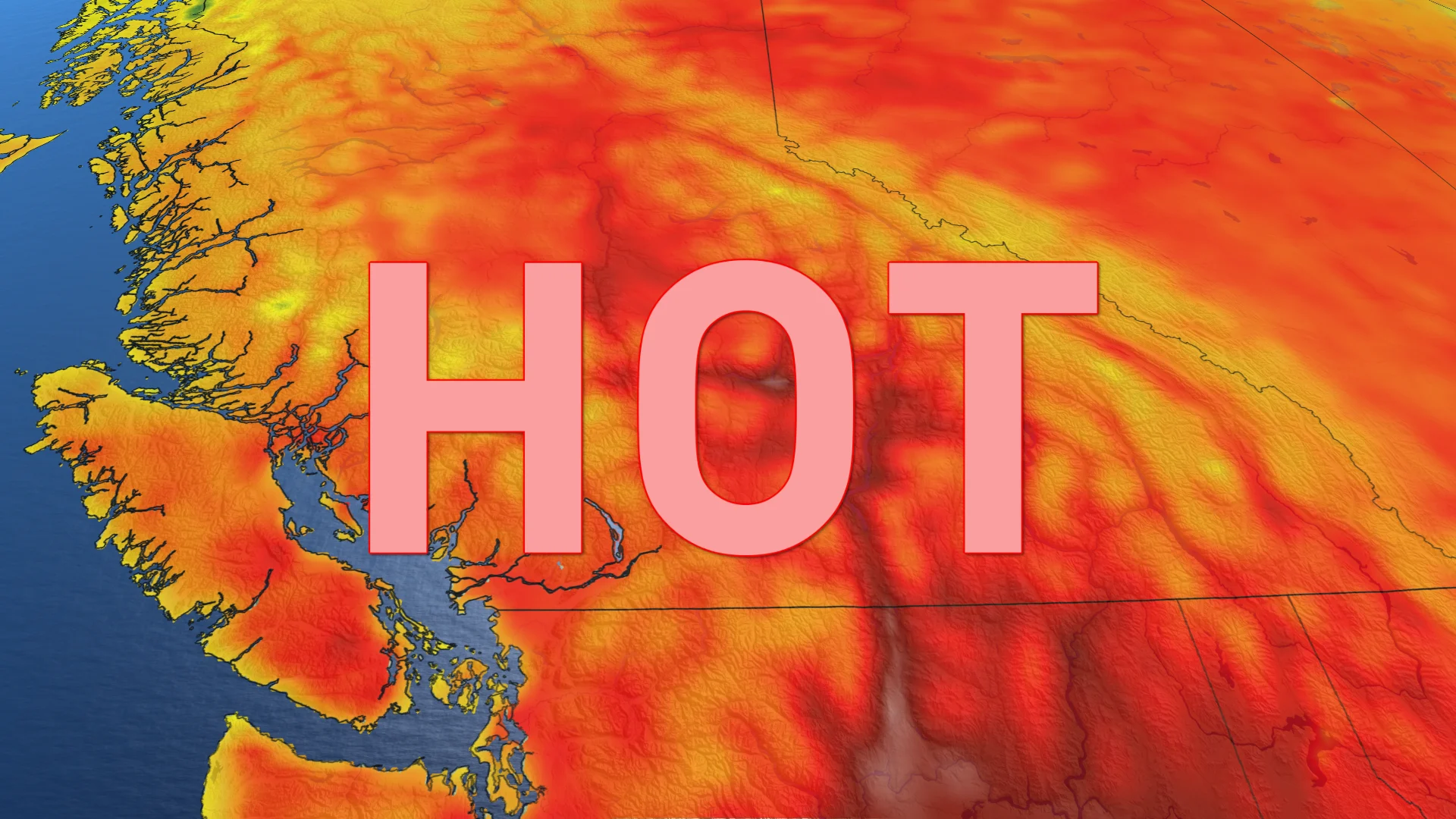
Ridge to push temperatures 10+ degrees above seasonal in B.C.
This month is set to end as one of the driest Julys on record for portions of the South Coast
Prepare for extreme heat to build into southern British Columbia over the next couple of days as a substantial ridge of high pressure parks across the province.
Temperatures are set to soar more than 10 degrees above seasonal in some communities as the heat builds through the middle of the week.
Given the forecast and what’s already fallen, it’s safe to say that this is going to turn out to be one of the driest Julys on record for many locations across the South Coast.
DON’T MISS: Why extreme heat is one of the world’s deadliest weather disasters
Temperatures soar as ridge settles over B.C.
Extreme heat will arrive Tuesday and Wednesday as a hefty upper-level ridge settles over the province.

Tuesday will feature temperatures in the upper 20s near the water, with 30 degrees possible just inland across Vancouver Island and the Lower Mainland.
Locations across the Interior will come in 4-6 degrees warmer, with readings surging into the lower to mid-30s.
Wednesday will come in even warmer, with temperatures easily surpassing 30 degrees within just a few hundred metres of the beaches, with widespread readings in the middle to upper 30s throughout the central and southern Interior.

RELATED: Canadian heat waves far more likely in the era of climate change
Heat affects everyone. Vulnerable people are especially susceptible to heat-related illnesses, including those with chronic health conditions and folks living without air conditioning. Be sure to check on your elderly family, friends, and neighbours.
The hot and dry weather will also pose a risk for increased wildfire activity throughout the region.
One of the driest Julys on record
This is typically Vancouver’s driest month of the year—but the lack of rain over the past couple of weeks is truly exceptional.
Vancouver has only seen 17 mm of rain this month, compared to the 34.1 mm of rain that falls in the city during a typical July.

Victoria measured only 0.2 mm of precipitation this month, making it the second-driest July on record. The city, which averages 19.5 mm of rain in a normal July, has gone completely rain-free five times during the month. Victoria’s most recent rainless July occurred in 2021.
Comox hasn’t seen a soaking rain since 10 mm fell on May 19. This month will end as the seventh-driest July on record there, with only 2 mm of precipitation in the gauges compared to the normal total of 23.8 mm.
WATCH: How Does Humidity Makes Heat More Dangerous?
Stay with The Weather Network for all the latest on conditions across British Columbia.
